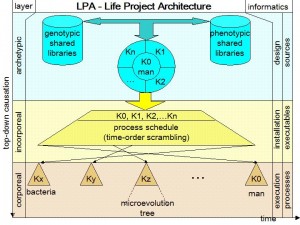KF: Darwinists, not ID Proponents, Have Minds Clamped Tightly Shut.
This exchange between lastyearon, KF and Eric Anderson is too delish to leave in a combox: LASTYEARON: What the ID proponents (specifically Eric Anderson and KD) are saying is that evolution isn’t science because it lacks sufficient detail at the molecular level. In order for them to accept that the eye evolved by accident (which is highly unlikely) you need to show exactly how it happened, molecule by molecule. However, personally I don’t even think that’s enough. We all know that organic molecules are extremely complex entities that are made of lots of atoms. And we also know that the atoms in those organic molecules are extremely complex themselves, and are made of lots of electrons, neutrons and protons. And Read More ›
